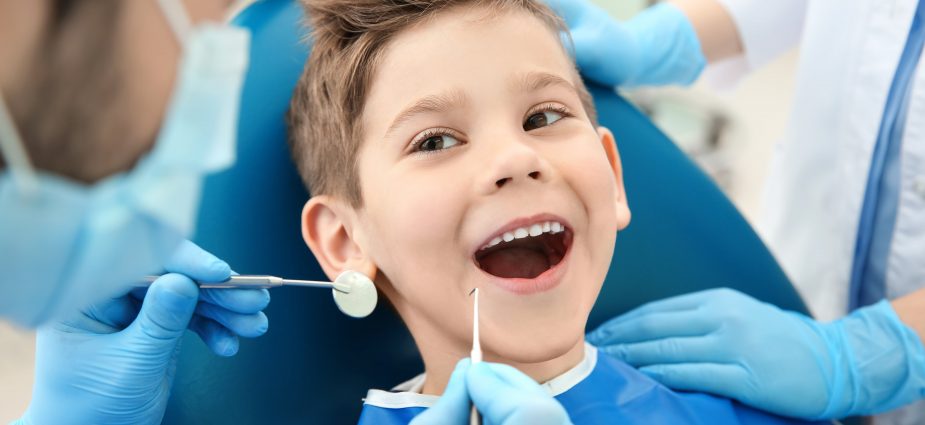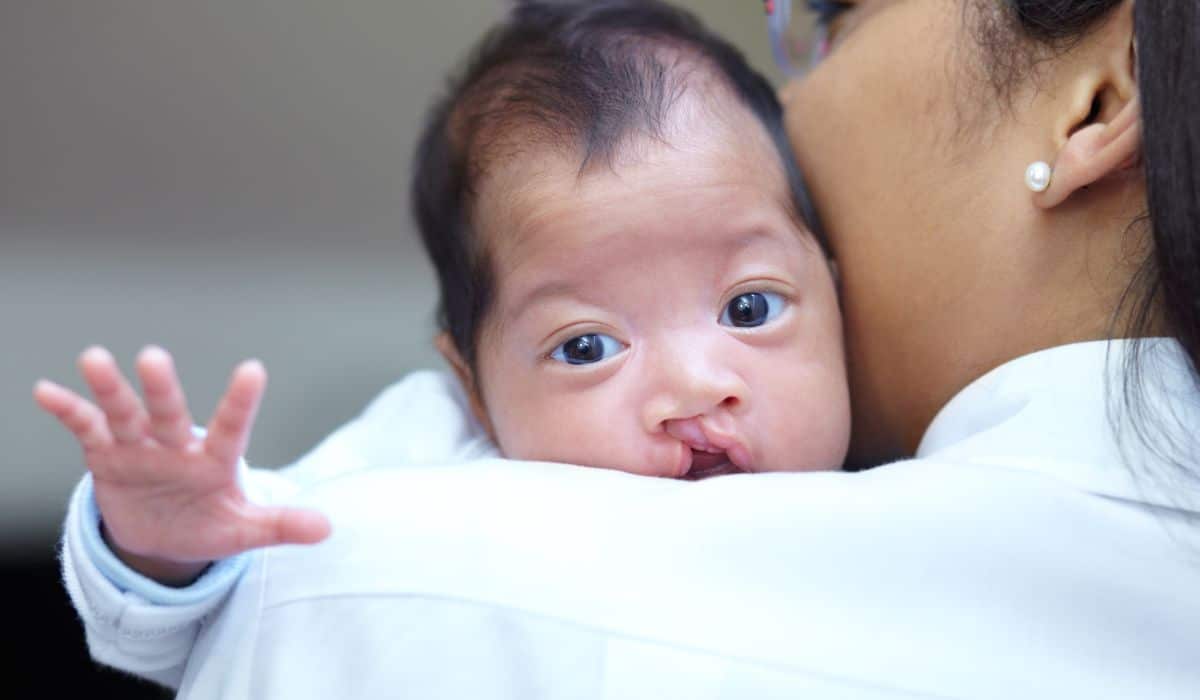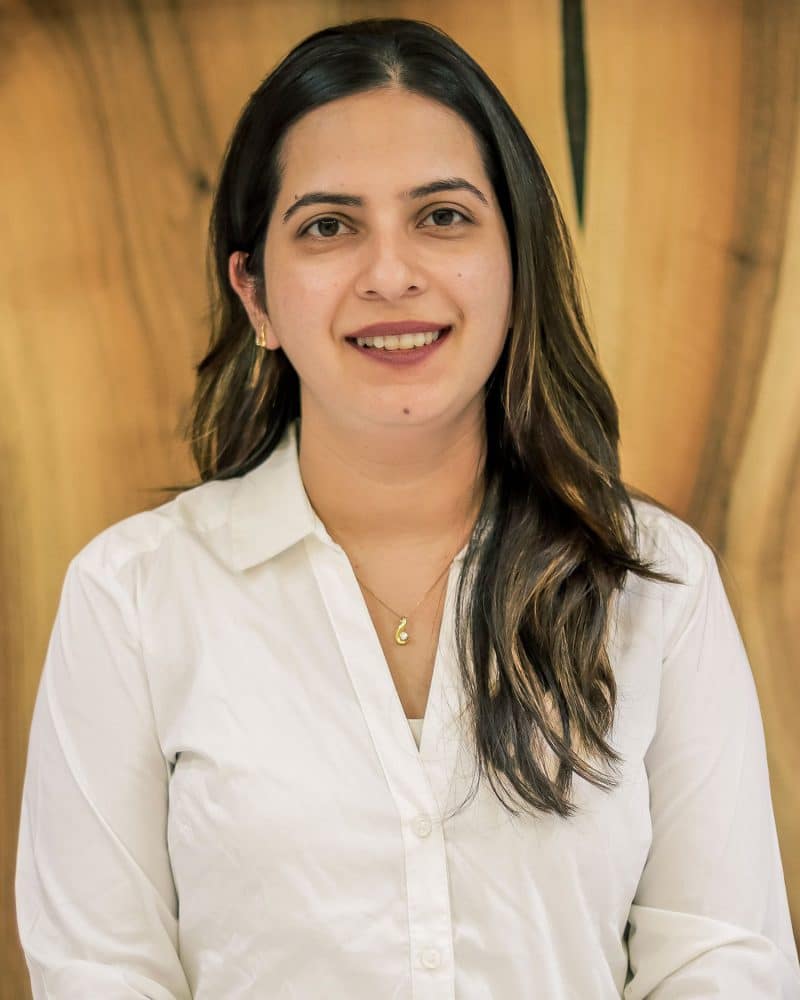As parents, ensuring the well-being of our children is our utmost priority. However, when a child is born with a cleft lip or palate, additional care and attention are necessary, particularly when it comes to dental health. Dr. Pratibha Kukreja Pandit, a renowned Pediatric Dentist at Pandit Clinic in Pune, brings her expertise to guide parents through the unique challenges of dental care for children with clefts.
First Things First: Let's Understand What Are Clefts and Related Deformities
Before delving into the unique dental challenges faced by children with clefts, it’s essential to comprehend what clefts entail. A cleft is a congenital condition characterized by a gap or opening in the lip, palate (roof of the mouth), or both. This condition occurs during early pregnancy when the tissues that form the face and mouth do not fully fuse. As a result, children may be born with a cleft lip, a cleft palate, or both.
Here’s something to know, Pandit Clinic, a leading center for specialized cleft lip and cleft palate surgeries for over 38 years, boasts a team of highly skilled specialists. Dr. Shrirang Pandit, a pioneer cleft surgeon in India, has performed approximately 7000 successful cleft surgeries. In 2017, Dr. Vikram Pandit completed a fellowship in Cleft and Craniofacial surgery from Chang Gung Memorial Hospital, Taiwan, specializing in jaw corrective cleft orthognathic surgery. Dr. Pratibha Kukreja Pandit, a Pediatric and Preventive dentist, brings extensive experience in treating dental issues in children with cleft deformities, having trained at Chang Gung Memorial Hospital, Taiwan, for Nasoalveolar molding and dental rehabilitation. With a multidisciplinary approach, Pandit Clinic ensures comprehensive and expert care for patients with cleft conditions.
Causes And Symptoms
Clefts can arise due to a combination of genetic and environmental factors, although the exact cause may vary from one individual to another. Some of the common causes and risk factors associated with clefts include:
- Genetic Factors: A family history of clefts or certain genetic syndromes can increase the likelihood of a child being born with a cleft.
- Maternal Lifestyle: Maternal factors such as smoking, alcohol consumption, and inadequate prenatal nutrition may contribute to the development of clefts.
- Environmental Exposures: Exposure to certain medications, toxins, or infections during pregnancy can also increase the risk of cleft formation.
- Malnutrition: A lack of certain vitamins and folic acid is also linked to the development of cleft defects.
The symptoms of cleft lip and palate are typically visible at birth and may include:
- Cleft Lip: A visible gap or split in the upper lip, which may extend to the nostril.
- Cleft Palate: An opening in the roof of the mouth, which may range from a small notch to a large gap that extends into the nasal cavity.
In addition to the physical characteristics, children with clefts may experience difficulties with feeding, speech development, and dental issues, highlighting the importance of early intervention and specialized care. Now, let’s explore the common dental challenges faced by these children and the specialized care they require.
Common Dental Challenges Faced by Children with Clefts
Children born with cleft lip and/or palate face specific dental challenges that require specialized care:
- Malocclusion: Clefts can often lead to misalignment of teeth, known as malocclusion, which can affect the child’s ability to chew and speak properly.
- Tooth Development: Clefts can also impact the development of teeth, leading to missing, malformed, or displaced teeth.
- Oral Hygiene: Due to the presence of gaps and irregularities, maintaining proper oral hygiene can be challenging for these children, making them more susceptible to dental caries and gum disease.
Specialized Dental Care Routines
To address these challenges, specialized dental care routines are essential. Here are some key strategies and tips:
Early Intervention: Begin dental care as early as possible, ideally before the eruption of the first tooth, to monitor growth and development. Early identification and treatment of dental issues can minimize the impact of clefts on oral health and overall well-being, allowing children to reach their full potential.
Regular Check-ups: Schedule regular visits to a pediatric dentist experienced in cleft care, like Dr. Pratibha herself, for comprehensive evaluations and preventive treatments. These check-ups ensure timely intervention and continuous monitoring of oral health.
Establish a Routine: Encourage regular brushing and flossing from an early age to instill good oral hygiene habits. Use specialized toothbrushes and floss designed for children with clefts to ensure effective cleaning.
Dietary Guidance: Limit sugary snacks and beverages that can contribute to tooth decay, and encourage a balanced diet rich in fruits, vegetables, and calcium. Proper nutrition supports overall oral health and development.
Monitor Oral Habits: Be mindful of habits like thumb sucking or pacifier use, which can impact dental development, and seek guidance on how to manage them. These habits can exacerbate dental issues associated with clefts.
Open Communication: Maintain open communication with your child’s dental care team, sharing any concerns or changes you observe in their oral health. Collaboration between parents and healthcare providers ensures the best outcomes.
The Importance of Early Care
Dr. Pratibha highlights the significance of early intervention in ensuring optimal outcomes for children with clefts:
- Maximizing Potential: Early identification and treatment of dental issues can minimize the impact of clefts on oral health and overall well-being, allowing children to reach their full potential.
- Holistic Approach: Comprehensive dental care, coupled with interdisciplinary collaboration with specialists like plastic surgeons and orthodontists, is key to addressing the multifaceted needs of children with clefts.
Restorative Care: Ensuring Healthy Smiles
Children with clefts require early evaluation and specialized restorative care to address issues such as missing or malformed teeth and increased susceptibility to decay. At Pandit Clinic, we offer a range of restorative treatments, including:
- Fillings: Small cavities can be treated with restorations using materials like glass ionomer cement or composite (light-cure cement).
- Root Canal Treatment: Extensive decay may necessitate pulp treatment procedures (root canal treatment) to preserve the affected tooth.
- Stainless Steel Crowns: For primary molars, stainless steel crowns may be recommended to restore form and function.
- Pit and Fissure Sealants: Preventive sealant restorations help protect permanent molar teeth, especially in the early stages of carious lesions.
- Topical Fluoride Applications: It is one of the most painless ways to prevent tooth decay and keep cavities away. These treatments are generally recommended once or twice a year, depending on the risk of cavities.
Orthodontic Care: Optimizing Dental Alignment
Orthodontic evaluation may begin before the eruption of teeth to assess facial growth, particularly jaw growth. Later, as teeth erupt, the orthodontist collaborates with the cleft palate team to address short and long-term dental needs.
- Treatment Phases: Early intervention may correct jaw relationships, followed by a rest period to monitor growth. The final phase focuses on aligning permanent teeth.
Coordinated Dental-Surgical Care
Coordination between the surgeon and pediatric dental specialist is vital for simultaneous procedures under anesthesia if necessary. Restorations or extractions may coincide with other surgeries.
- Bone Grafting: Surgical reconstruction of the cleft defect, often with bone grafting, requires coordination with orthodontic preparation and appliance placement.
Prosthodontic Solutions: Enhancing Function and Aesthetics
Missing teeth in the cleft and craniofacial region can impact speech, aesthetics, and eating abilities. Our prosthodontic care includes:
- Dental Crowns and Bridges: To replace missing teeth and improve aesthetics, our cleft palate team may recommend dental crowns or bridges.
- Oral Appliances: Custom-made oral appliances like obturators help close the gap between the nose and mouth, improving speech clarity and function.
Care of Permanent Dentition: Long-Term Maintenance
As children with clefts transition into adolescence, ongoing dental care is essential to maintain oral health and function. Our comprehensive approach includes:
- Definitive Restorative Care: Root canal treatment, dental implants, and cosmetic corrections are tailored to meet the unique needs of each patient.
- Routine Follow-Ups: Regular dental visits and follow-ups ensure optimal oral health and address any emerging issues promptly.
Communication with the Cleft Team
Effective communication with the cleft team is integral to multidisciplinary care, especially from the mixed dentition stage onwards. At Pandit Clinic, our dedicated cleft palate team collaborates to plan and execute treatment, ensuring comprehensive care for every patient.
- Follow-up Care: Postoperative visits include routine dental or orthodontic check-ups, toothbrushing instructions, dietary advice reinforcement, and fluoride mouth rinse recommendations as needed.
In conclusion, navigating dental care for children with clefts requires expertise, compassion, and a personalized approach. Dr. Pratibha Kukreja Pandit, with her extensive training and dedication to pediatric dentistry, is a trusted partner for parents seeking specialized care for their little ones at Pandit Clinic in Pune. With her guidance and support, children with clefts can achieve healthy, beautiful smiles and thrive in every aspect of their lives.
Virtual Video Consultations
100% SAFE AND SECURE CALLS WITH ENCRYPTION. YOUR PRIVACY AND CONFIDENTIALITY IS GUARANTEED.
Start here, by making an appointment for a virtual consultation with our expert Dr. Pratibha Kukreja Pandit (NEW PATIENTS ONLY).
Dr. Pratibha Kukreja Pandit is available for Virtual Video Consultations from Monday – Saturday between the hours of 11 am – 2pm and 4pm – 7pm.
If you are already our valued patient with questions or have an emergency please contact the clinic on +91 9822053446
Consult Dr. Pratibha Kukreja Pandit
(Pediatric Dentist)
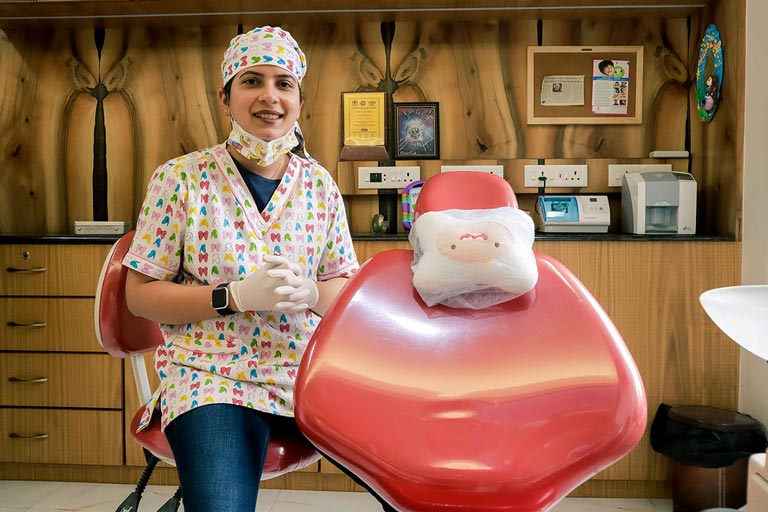
Virtual Video Consultation Fees Rs. 500
The Consultation Fees Must Be Paid Online by GOOGLE PAY BEFORE YOUR APPOINTMENT. See The Instructions On Appointment Confirmations
Your virtual video consultation includes:
- Discussion of problems that your child is facing like tooth pain, swelling or any other emergencies
- Dr. Pratibha will recommend a course of treatment or medications for your child.
Meet the Doctor
Pediatric and Preventive Dentistry Specialist
Dr. Pratibha is the Chief Dentist at Pandit Clinic. She is also a Consultant Pediatric Dentist at Kotbagi Hospital and KEM Hospital, Pune.
Dr. Pratibha has trained at the prestigious Chang Gung Memorial Hospital, Taiwan, in advanced areas including Pediatric dental treatment under General Anesthesia and Intravenous sedation, Dental Rehabilitation of children with special health care needs, and Nasoalveolar molding and dental rehabilitation of cleft lip and cleft palate.
She’s the lifetime member of Student Clinician Association, American Dental Association (SCADA), USA.
Professional Affiliations and Skills
- Trained in Pediatric dental treatment under General Anesthesia and Intravenous sedation at Chang Gung Memorial Hospital, Taiwan
- Trained in Dental Rehabilitation of children with special health care needs at CGMH, Taiwan
- Trained in Nasoalveolar molding and dental rehabilitation of Cleft lip and Cleft Palate at craniofacial centre, CGMH, Taiwan
- Awarded Lifetime membership, SCADA (Student Clinician Association, American Dental Association), USA.
You Might Be Interested In

How to Make Brushing Fun and Easy for Your Kids
As parents, ensuring your child maintains good oral hygiene habits can sometimes feel like a daunting task. But what if brushing teeth could become a fun and engaging part of your child’s daily routine?
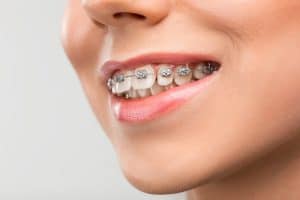
All You Need To Know About Braces
What Is Orthodontic Treatment? Orthodontic treatment is the use of dental tools to straighten or move teeth to improve dental health and appearance. It helps






